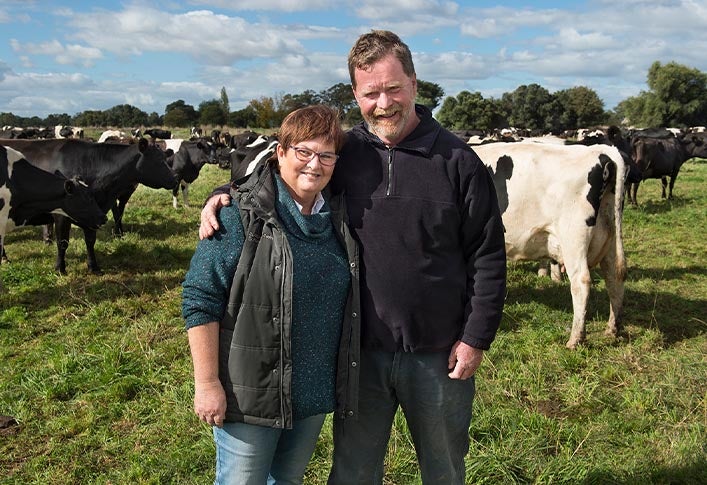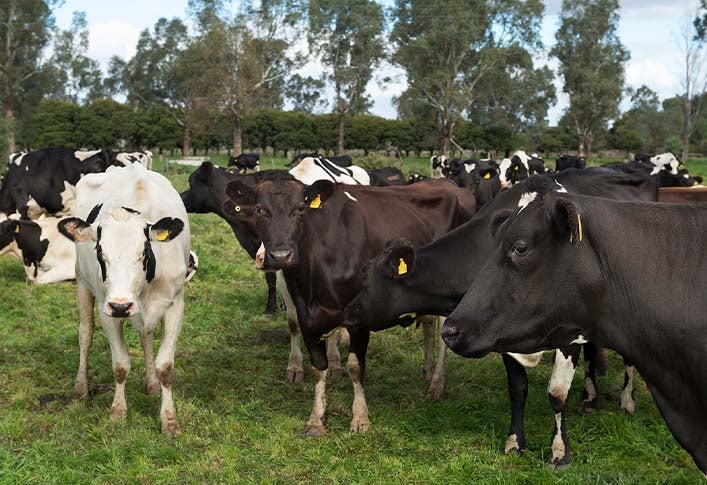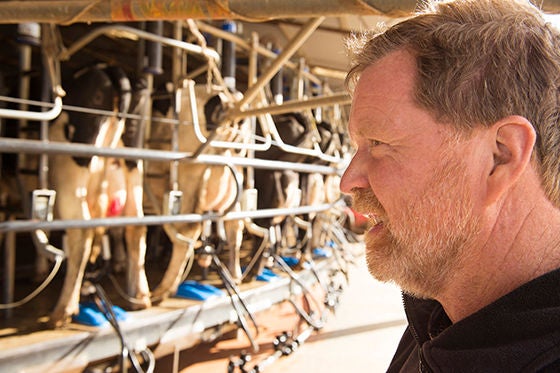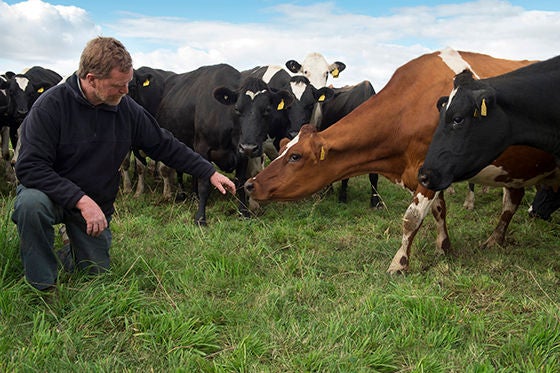Posted by on
08/09/2021
It was joint careers in agriculture that brought together dairy farmers Mark and Ann Gardiner, leading not only to marriage and family, but to the establishment of their now thriving business, Gardiner Farms.
The couple first met while they were both working with the Victorian Department of Agriculture – Ann as a dairy officer and Mark as an irrigated cropping officer. After their marriage, they were both determined make it in business together.
“The only business we were interested in was farming and the farming we had the opportunity to get into was dairy,” Ann said.

After share farming for 12 months, they bought their own farm in 1990. It was the beginning of their life as a farming family, with the first of their five children born on the same day they moved in.
Today the Gardiner’s irrigated dairy covers about 320 hectares in the Victorian district of Bamawm, with 930 cows in A1 and A2 herds producing about 7.26m litres of milk a year.
It’s a far cry from their starting point of 42 hectares of unimproved land, a simple dairy set up and 190 cows.
“The first thing we did was add some grain feeding capability into the dairy. We didn’t automate it until a couple of years later, so we bucketed grain into the troughs ourselves,” Ann recalled.
Next came improvements to their irrigation set up through laser grading, a gradual expansion of land and steady increases in both cow numbers and production per cow.
“But we got to the point where we were milking 400 cows through the old dairy and the milking was taking us 11 hours a day.”
“We decided that wasn’t sustainable for our farm staff, so we built a 60-stand rotary dairy in 1996,” Ann said
Other key considerations for the Gardiners in building their business have been water efficiency and water security.
They accelerated their laser grading program to use water more efficiently, when the lack of water during the Millennium drought forced them to dry off some of the farm.
“We also decided to do something about our water security, so we bought a heap of low water reliability shares to try to hold two years’ worth of water,” Ann said.
“But with the latest drought conditions bringing more water scarcity, we are now feed lotting our herd. We are assessing what the future might bring us and how we can strategically position ourselves to take advantage of whatever comes.”
And more changes will undoubtedly come, with their eldest son, 28-year-old Jacob, recently returning to the business after completing a Masters in Agriculture and Agribusiness and working for several years with a grain trading organisation.

“Jacob has brought a lot of enthusiasm and is looking for opportunities to do things in the business, which is really good,” Ann said.
“Jacob and I are very keen on looking at how we can make the business more sustainable in terms of energy and our carbon footprint, and looking into biodiversity corridors."
"We are both concerned about the loss of biodiversity and we want to do our small bit towards protecting our environment.”
For the Gardiners, another important factor in their business has been their relationship with Rabobank over the last 12 years.
“We were happy to go with Rabobank because they treated us like adults that understood our business. They talked to us about what our business goals were and they were enabling of us achieving those goals,” Ann said.
“I see our relationship with Rabobank as a partnership and we have to keep each other informed about what’s going on in our world and the wider Rabobank world."
With Jacob’s return to the business, the family has also turned to Rabobank for a succession planning session.
“We didn’t want to change our business structure until Jacob was sure that he was staying. We’ve been thinking about it and talking to other people about it. We’ve also talked to the other kids about how they need to be involved in the process,” Ann said.

While the need to secure a future for themselves and their children has helped Mark and Ann to keep working towards their goals, Ann said that they have both always been driven by their love of their cows and love of farming.
“We are really passionate about agriculture, and this business is something that we could do together and make use of our skills,” she added.
